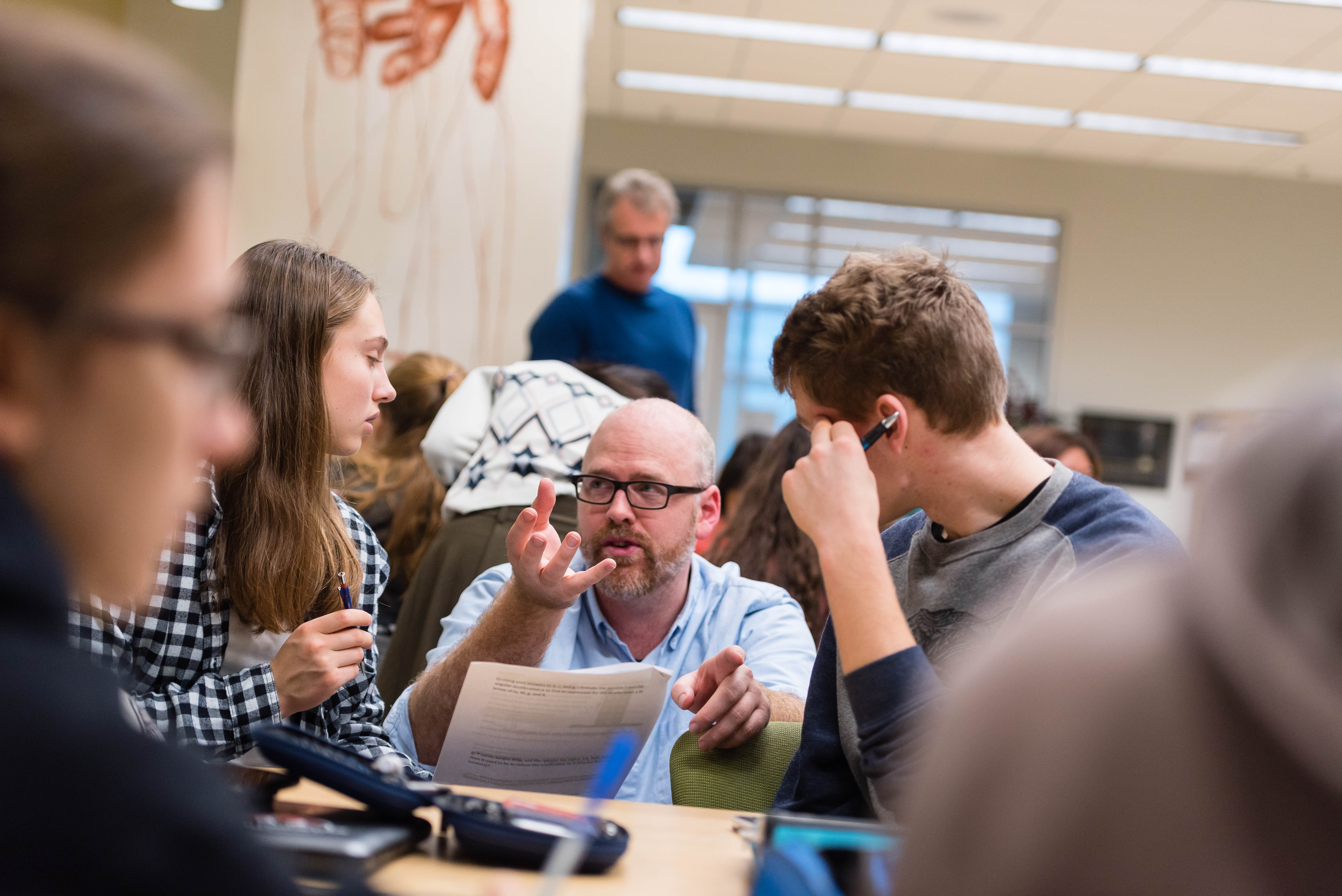New free guide aims to improve STEM teaching at universities
April 11, 2019

April 11, 2019

With The Science Education Initiative Handbook, UBC’s Warren Code and the University of Colorado Boulder’s Stephanie Chasteen offer a free guide designed to help universities transform their STEM teaching practices. The book details the SEI model pioneered at both institutions over 10 years, and showcases ways to make STEM classes more engaging.
The SEI Handbook offers a wealth of recommendations and resources in planning and implementing a STEM education initiative, with a particular focus on the introduction of “discipline-based education specialists” into departments to catalyze a shift to research-informed teaching. It offers advice and resources for people at all levels of these efforts: university administrators, department leadership, and the specialists.
Faculty are often interested in trying educational innovations, but lack the time and expertise to carry them out. A DBES is an embedded educational “engineer” who provides expertise both in a discipline (chemistry, mathematics) and in applying effective education techniques. They’re an essential link between departmental faculty and the broader education research community. They’re not just people who are enthusiastic about teaching. They bring unique expertise to help implement more effective, research-based methods of instruction in a department.
It’s critical to engage with departments and their context. Meet them where they’re at – figuratively and literally – and consider their particular challenges when building goals. There’ll always be individuals who are interested and participate in teaching innovation, but without this department-level engagement, these ideas are unlikely to spread and won’t become an ongoing part of the department’s teaching culture.
There is general consensus among university administrators and many faculty that teaching should shift beyond traditional lectures. Many institutions have some sort of teaching initiative, but the scale and success can be difficult to discern. With the SEI model at UBC and UC Boulder, we’ve demonstrated that shifting teaching practices and teaching cultures in departments is possible on a large scale. Having a central unit which oversees this initiative — like UBC’s Skylight (Science Centre for Learning and Teaching) or the Center for STEM Learning at UC Boulder — is very important.
To learn more, download your free copy of The Science Education Initiative (SEI) Handbook
We honour xwməθkwəy̓ əm (Musqueam) on whose ancestral, unceded territory UBC Vancouver is situated. UBC Science is committed to building meaningful relationships with Indigenous peoples so we can advance Reconciliation and ensure traditional ways of knowing enrich our teaching and research.
Learn more: Musqueam First Nation